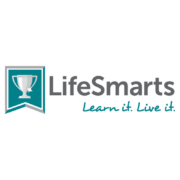
By Eden Iscil, Public Policy Associate
If you’ve got student loans like I do, you were probably waiting on President Biden’s student debt cancellation since January 6, 2021. And in late August, President Biden delivered on this promise and announced up to $20,000 in relief for borrowers. While the one-time debt relief has dominated headlines (and rightfully so), Biden’s Department of Education (ED) has implemented a few other noteworthy changes to the federal student loan system—reforms that could save thousands of dollars for millions of borrowers.
Here is a brief (and non-exhaustive) overview of recent modifications to US student loan infrastructure that consumers should keep in mind.
One-Time Debt Cancellation
The application for one-time debt relief is live and can be accessed at https://studentaid.gov/debt-relief/application. The process is 100% free and it takes less than five minutes to complete. This is the only website to which consumers should be providing information to receive debt cancellation. Filers do not need to go digging for old forms, IDs, or income receipts as the only information the application requires is name, date of birth, email, and Social Security number. The ED may contact select borrowers to verify eligibility or request further information, but unless you are contacted, you are good.
Borrowers who earn less than $125,000 a year are eligible for up to $10,000 in debt relief on federally held student loans. This amount increases to $20,000 in cancellation for Pell Grant recipients. Student loans eligible for cancellation must be held by the federal government and disbursed on or before June 30, 2022.
Student loans eligible for Biden’s debt cancellation include:
· Federal Direct Loans (including Direct Subsidized Loans, Direct Unsubsidized Loans, Direct PLUS Loans, Direct parent PLUS Loans, and Direct Consolidated Loans)
· Federal Family Education Loans (FFEL) held by ED
· Federal Perkins Loans held by ED
· FFEL and/or Perkins loans that were privately held but the borrower applied for these loans to be consolidated into a US ED consolidation loan before September 29, 2022
Student loans not eligible for the federal, one-time debt cancellation include:
· FFEL loans not held by ED
· Perkins Loans not held by ED
· Federal loans that were consolidated into a commercial loan
· Student loans held by a private lender
· Student loans held by a state government
Refunds for Loan Payments Made During the Pandemic
If you had paid off your federal loan balance after the pandemic began, you can request a refund for those payments to receive your debt relief. This should be done before applying for the debt cancellation. Also, this should only be done if you paid off your entire balance and would otherwise be unable to claim debt relief. If you still have an outstanding balance equal to or greater than the amount of debt cancellation you are eligible for, you likely do not want to request a refund for your payments.
To get your money back, call your loan servicer directly to ask for a refund on payments you made since March 13, 2020. You should figure out the specific amount of money you are requesting back before contacting your servicer. Additionally, you should have your payment confirmations and receipts nearby throughout this process to ensure that you get a refund for every payment that you want refunded. Then, you should apply for the one-time debt cancellation.
Will Debt Relief Be Taxed?
The one-time debt relief will not be taxed by the federal government, thanks to a provision within the 2021 American Rescue Plan. States, however, can tax debt cancellation as income. This is something that a small number of states have weirdly said they intend to do, while a handful of others may also end up taxing their residents on debt relief by failing to pass legislation in time to exempt the debt cancellation. Most states though will not tax the relief for borrowers.
Federal Payment Pause Ending
President Biden coupled the sweet with the sour by announcing the end of the federal payment pause on student loans alongside the debt cancellation. Since early 2020, student borrowers have not had to pay a cent toward their federal student loans. Now, that payment pause (AKA administrative forbearance) is set to expire on December 31, 2022, it is unclear what the impact will be of an added monthly expense to tens of millions of borrowers (especially as recession worries grow). The two-and-a-half-year pause made clear that these payments are not necessary—Biden, there’s still time to change your mind!
A New Income-Driven Repayment Plan
While receiving a significantly lesser share of the headlines, the new income-driven repayment (IDR) plan will have a significant impact. As opposed to standard repayment plans, which are calculated only from the principal loan balance, the interest rate, and the length of repayment, ED’s IDR plans put a cap on a borrower’s monthly payments proportional to the borrower’s income. Although a few IDR plans have been available for some time, President Biden’s newly announced IDR plan includes enhanced provisions to help prevent debt from becoming unmanageable.
The new IDR plan will place a payment cap at 5% of a borrower’s discretionary income (half of the previous 10%). Additionally, it will raise the threshold for non-discretionary income to 225% of the federal poverty level (the equivalent of $15/hr); borrowers earning less than this amount will not have to make a monthly payment. Furthermore, borrowers with original loan balances of $12,000 or less will have their debt wiped out in 10 years of enrollment in this IDR plan. Lastly, if monthly payments are made, the ED will cover the added interest, ensuring that borrowers’ outstanding balance does not grow, even if their monthly payment is $0 due to their income level.
To enroll in the new IDR plan when it becomes available, or to switch to any of the four existing ones, visit https://studentaid.gov/idr/.
Fresh Start for Borrowers in Default
When the federal payment pause ends on December 31, 2022, the federal government will open their Fresh Start program for one year, allowing borrowers who were previously in default to enter repayment in good standing. The program will not require anything like a lump sum payment or consolidation, but it will remove the many penalties associated with default, such as wage garnishment and the denial of further student aid.
More details on how to enroll when this program opens on January 1, 2023 can be found at https://studentaid.gov/freshstart.






















